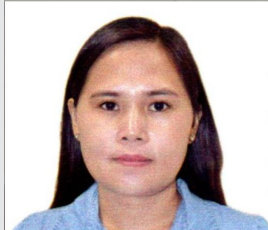Asia-Pacific Mental Health and Well-being Congress
THEME: "Future Directions: Pioneering Mental Health and Well-being Initiatives"
 27-29 Oct 2025
27-29 Oct 2025  Bali, Indonesia
Bali, Indonesia THEME: "Future Directions: Pioneering Mental Health and Well-being Initiatives"
 27-29 Oct 2025
27-29 Oct 2025  Bali, Indonesia
Bali, Indonesia 
Cebu Technological University, Philippines
Title: Examining the Role of Grit and Valuing of Mistakes among Pre-Service Scholars in Cebu, Philippines: A Convergent Parallel Mixed-Methods Study
Dr. Melona C. Deguma is a licensed guidance counselor, registered psychometrician, and professional teacher currently serving as Associate Professor at Cebu Technological University. She holds a Doctor of Development Education and a Master of Education in Guidance and Counseling. With numerous Scopus- and WoS-indexed publications, Dr. Deguma is also a sought-after resource speaker and project leader in mental health and community extension programs. Her research spans public health, education, and psychosocial development. Passionate about holistic formation, she continues to mentor future educators and lead transformative outreach initiatives aimed at empowering underserved communities across Cebu and beyond.
In the dynamic academic environment of Cebu, Philippines, pre-service college scholars face challenges that demand resilience and a constructive perspective on mistakes. This study aimed to (i) assess grit levels among these scholars and (ii) explore their attitudes towards mistakes as learning opportunities. Given the intertwined nature of grit and valuing mistakes, a convergent parallel multi-strand mixed-method design was applied, integrating quantitative and qualitative data for a comprehensive perspective. Both quantitative and qualitative data were collected using the Grit Scale-Short Form and a questionnaire on attitudes toward mistakes for the quantitative component, and semi-structured interviews for qualitative insights based on Dweck’s Mindset Theory and Duckworth’s Grit Framework. Data from 338 surveys and 12 interviews were analyzed independently, followed by an integrated analysis to identify convergence, divergence, and complementary insights. Quantitative findings showed that scholars generally displayed moderate to high levels of grit, with the majority viewing mistakes positively and considering them essential for growth. Regression analysis indicated that students with greater grit tended to perceive mistakes more constructively, linking resilience with a proactive approach to learning. A positive relationship was also observed between grit and academic performance, suggesting that resilient students also tended to excel academically. Qualitative analysis further highlighted key themes, including (i) Grit’s Role in Academic Persistence, (ii) Valuing Mistakes for Growth, (iii) Emotional Resilience and Adaptability, and (iv) Socioeconomic Background’s Impact on Determination. These insights underscore the importance of educational programs that promote persistence and a growth mindset, suggesting that institutions could enhance student success and adaptability by fostering grit and positive attitudes toward learning through mistakes.